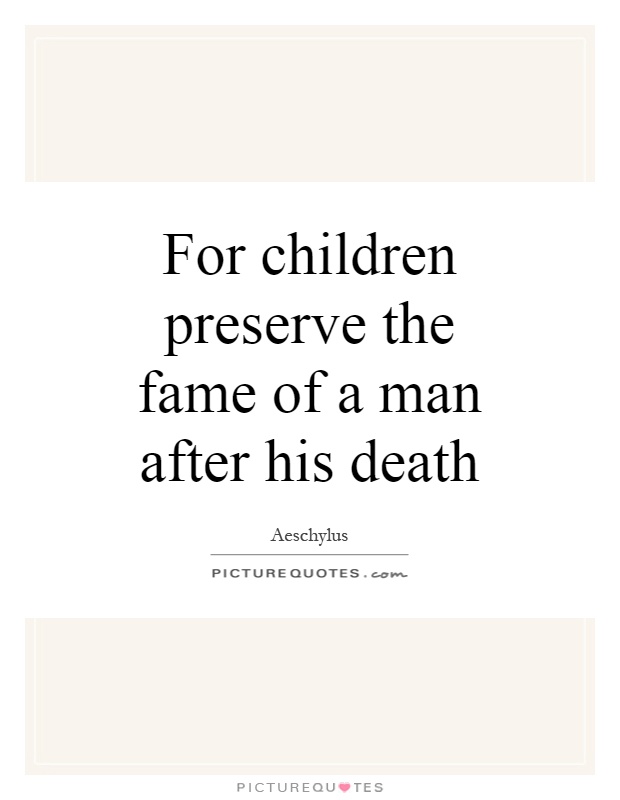For children preserve the fame of a man after his death

For children preserve the fame of a man after his death
Aeschylus, the ancient Greek playwright known as the father of tragedy, left behind a legacy that has endured for centuries. His works, including famous plays such as "The Oresteia" and "Prometheus Bound," have been studied and performed around the world, cementing his reputation as one of the greatest playwrights in history. But what is perhaps even more remarkable is the way in which Aeschylus' fame has been preserved through the ages by the impact his works have had on children.For children preserve the fame of a man after his death, as Aeschylus himself once said. This statement speaks to the power of storytelling and the way in which the stories we tell can shape the way we are remembered. In the case of Aeschylus, his plays have been passed down from generation to generation, ensuring that his name and his work continue to be celebrated long after his death.
One of the reasons why Aeschylus' plays have resonated with children throughout the ages is their timeless themes and universal messages. The struggles of the characters in his plays – their conflicts, their triumphs, their tragedies – are all things that children can relate to, regardless of the time period in which they were written. The themes of justice, revenge, and the power of the gods are all things that continue to be relevant to children today, making Aeschylus' plays as compelling and engaging now as they were when they were first performed.












 Friendship Quotes
Friendship Quotes Love Quotes
Love Quotes Life Quotes
Life Quotes Funny Quotes
Funny Quotes Motivational Quotes
Motivational Quotes Inspirational Quotes
Inspirational Quotes